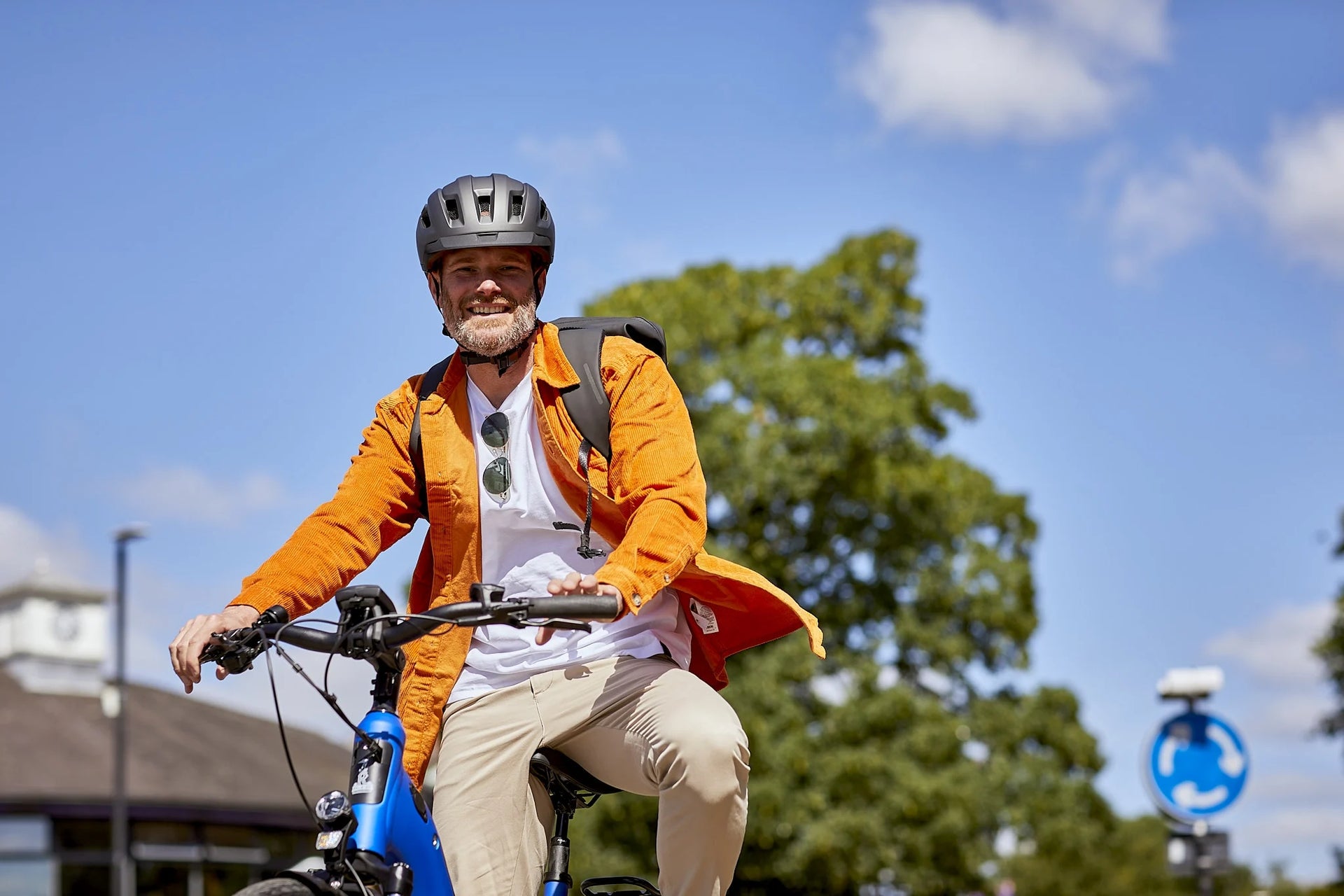
The 5 E’s in Ebike you didn’t know
The word Ebike is short for Electric Bike or is it? Here are 5 more E’s in Ebike you didn’t know.
Effortless
Electric bikes or Ebikes, are often perceived as effortless due to the assistance provided by their motor. However, that’s not strictly true unless the bike has a throttle (illegal). Riders still have to pedal so some effort is required. So it’s more Less Effort than Effortless but we’ll still count it as an E.
Efficient
The motors in electric bikes are highly efficient at converting electrical energy into mechanical energy. This direct conversion reduces energy losses compared to, say, internal combustion engines, where energy is first converted to mechanical energy and then transmitted to the wheels.
Additionally, the variable power settings on an electric bike allow riders to tailor how much assistance they need. Riders can use the motor only when needed, such as going uphill or into strong headwinds. This optimises the energy used and increases energy efficiency.

Eco-Friendly
How eco-friendly EV’s are, is a contentious issue due to the embedded carbon produced by their manufacture. However, electric bikes have a tiny carbon footprint compared to EV’s and therefore they are exponentially more eco-friendly.
Like EV’s, Ebikes produce zero emissions during operation, something car manufacturers choose to conveniently focus on, ignoring carbon produced during manufacture and distribution.
In a recent report, Trek Bicycles concluded that a non-electric bike created 100kg carbon dioxide equivalent to manufacture (CO2e) and another 65kg to electrify one. In comparison a small hatch back EV creates approximately 5500kg and an SUV 18500kg. A huge difference and a reason why electric bikes offer a sustainable solution for replacing short car journeys and contribute to less air pollution, less noise pollution and less traffic congestion.

Effective
If you want a tool that beats traffic congestion, saves you money and gets you fit, an Ebike should be top of your shopping list.
Bikes beat traffic because they can take shortcuts in urban areas where vehicles can’t go such as shared paths for example. Travelling short distances on an electric bike is an effective time-saver.
With 70% of car journeys under 5 miles, even if you only replaced some of them, the cost savings on fuel and wear and tear on a vehicle are vast. Enough to pay for bike. Let us say a car can average 35 miles to the gallon. So, 1000 miles would take 28.57 gallons or 129.7 litres. At £1.50 per litre, 1000 miles in this car would cost £194.57 in fuel. For an ebike, let us assume an average range of, say, 50 miles on a full battery which costs 30p to charge. 1000 miles will require 20 charges at 30p, so the total fuel cost for an electric bike will be £6. A massive saving every time you cycle instead of drive. Electric bikes are effective money savers.
Further Reading
Electric bikes are plagued by myths they are cheating when, in fact, that’s completely untrue. Although riders benefit from assistance the level of effort is lower but more consistent and that effort is exercise. The benefits of exercise for our health and wellbeing are well-documented. Commuting to work by electric bike is linked with a 45% lower risk of developing cancer and a 46% lower risk of heart disease, a stat that should not be lost on us. Ebikes are effective health boosters.

Enjoyable
Cycling is very social, but age, fitness and mobility can be barriers to cycling in groups because of the disparity of abilities that maybe within them. Electric bikes offer the less able and less fit real, tangible opportunities to enjoy cycling in a group. The assistance simply allows riders to keep up and levels the terrain.
Cycling solo is more enjoyable too. Riders are able to ride further and longer than on a tradition, non-electric bike.

